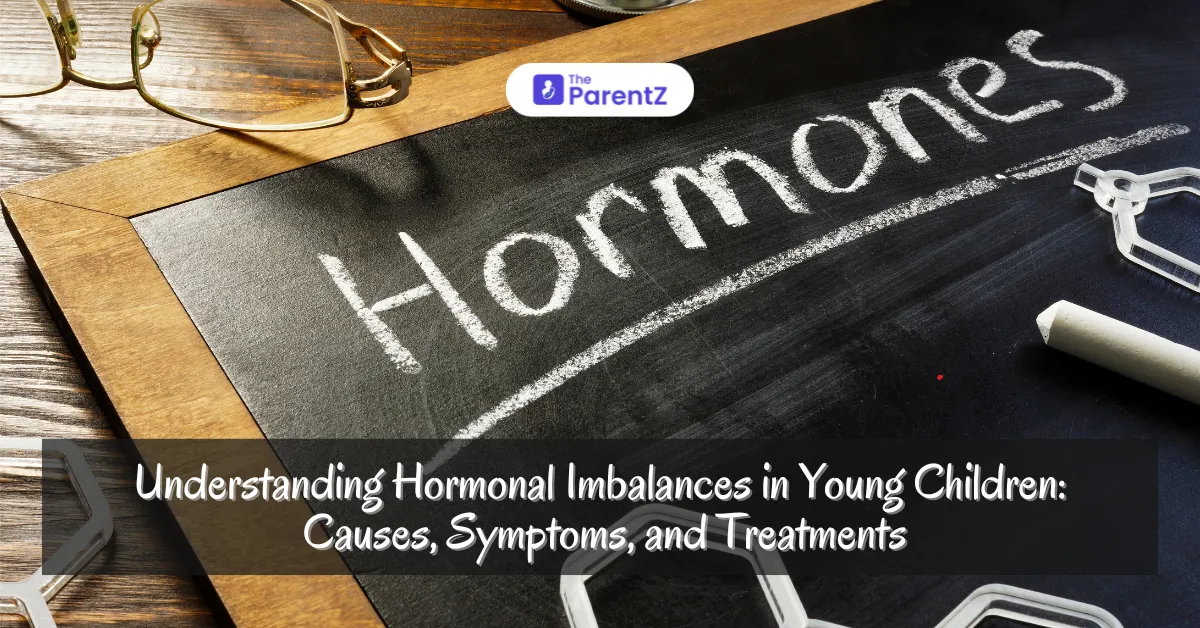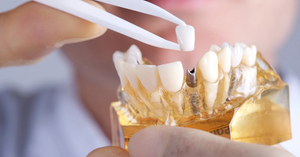Hormonal imbalances in young children, though less common than in adolescents or adults, can have significant impacts on growth, development, and overall health. Hormones, which regulate various bodily functions, are essential for growth, metabolism, and mood regulation. When these hormones are out of balance, it can lead to various health concerns, some of which may affect oral health. This article delves into the causes, symptoms, and potential treatments for hormonal imbalances in young children and offers insights on how parents and caregivers can help manage these conditions.
What Are Hormonal Imbalances?
Hormonal imbalances occur when there is too much or too little of a particular hormone in the bloodstream. Even small changes can disrupt the delicate balance of the body, affecting physical and emotional well-being. In children, hormonal imbalances can influence their growth, behavior, and sometimes even their dental health.
Causes of Hormonal Imbalances in Children
Several factors may contribute to hormonal imbalances in young children, including:
• Genetic Factors: Some children may inherit a predisposition to hormonal disorders.
• Environmental Factors: Exposure to endocrine-disrupting chemicals (like BPA) can influence hormone levels.
• Nutrition: Poor diet or specific deficiencies, such as iodine, can impact thyroid function and overall hormonal health.
• Medical Conditions: Certain medical conditions, such as congenital adrenal hyperplasia, can lead to hormonal imbalances from birth.
• Stress and Trauma: Although stress affects adults more commonly, even young children can experience hormonal shifts due to emotional or physical stress.
Common Hormonal Disorders in Children
1. Growth Hormone Deficiency (GHD): A condition where the pituitary gland doesn’t produce enough growth hormone, leading to shorter stature and slower growth.
2. Hypothyroidism: Caused by an underactive thyroid gland, leading to symptoms like fatigue, weight gain, and delayed development.
3. Precocious Puberty: Early onset of puberty, generally caused by excess sex hormone production, resulting in early physical development.
4. Congenital Adrenal Hyperplasia (CAH): A genetic condition impacting cortisol and aldosterone levels, which can affect blood pressure, stress response, and development.
Symptoms of Hormonal Imbalance in Young Children
While symptoms can vary depending on the type of hormonal disorder, common signs to watch for include:
• Changes in Growth Patterns: Unusually fast or slow growth may signal growth hormone issues.
• Early or Delayed Puberty Signs: Unusually early development of secondary sexual characteristics may indicate hormonal imbalances.
• Behavioral Changes: Mood swings, fatigue, and irritability can sometimes be related to hormonal issues.
• Oral Health Concerns: Hormonal imbalances can impact oral health, leading to delayed tooth eruption, gum issues, or tooth decay.
Impact of Hormonal Imbalances on Oral Health
Hormones play a crucial role in oral health, impacting tooth development, gum health, and saliva production. Some ways hormonal imbalances can affect dental health in children include:
• Delayed Tooth Eruption: Hypothyroidism or growth hormone deficiencies can delay the growth of primary teeth.
• Gum Inflammation: Imbalances in certain hormones can lead to swollen or inflamed gums, making oral care more challenging.
• Increased Susceptibility to Cavities: Hormonal shifts can alter saliva production, which protects against cavities, increasing the risk of tooth decay.
Diagnosis and Treatment
Diagnosing hormonal imbalances requires a thorough medical evaluation, which may include:
• Blood Tests: To measure hormone levels and identify imbalances.
• Growth Monitoring: Regular tracking of height, weight, and growth rate.
• Imaging Tests: MRI or CT scans may be used if an abnormal growth or pituitary issue is suspected.
Treatment
• Hormone Replacement Therapy (HRT): To supplement deficient hormones, such as growth hormone or thyroid hormone.
• Lifestyle Changes: Diet, exercise, and stress management may help maintain hormonal balance.
• Medications: In cases of early puberty or specific conditions, medications can help regulate hormone levels.
Preventive Tips for Parents
While not all hormonal imbalances can be prevented, these tips may reduce risks and improve overall health:
• Encourage a Balanced Diet: Ensure your child has adequate nutrition, focusing on iodine, zinc, and essential vitamins.
• Limit Exposure to Endocrine Disruptors: Reduce plastic use, choose BPA-free products, and minimize exposure to pesticides.
• Prioritize Regular Check-Ups: Early diagnosis is key to effective treatment, so regular pediatric and dental visits are essential.
Conclusion
Hormonal imbalances in young children can pose challenges to their physical development, emotional well-being, and oral health. Early recognition and treatment are crucial to managing these conditions effectively. By staying vigilant about symptoms, prioritizing regular check-ups, and fostering a healthy environment, parents can help support their children’s hormonal health, promoting balanced growth and overall wellness.








Be the first one to comment on this story.